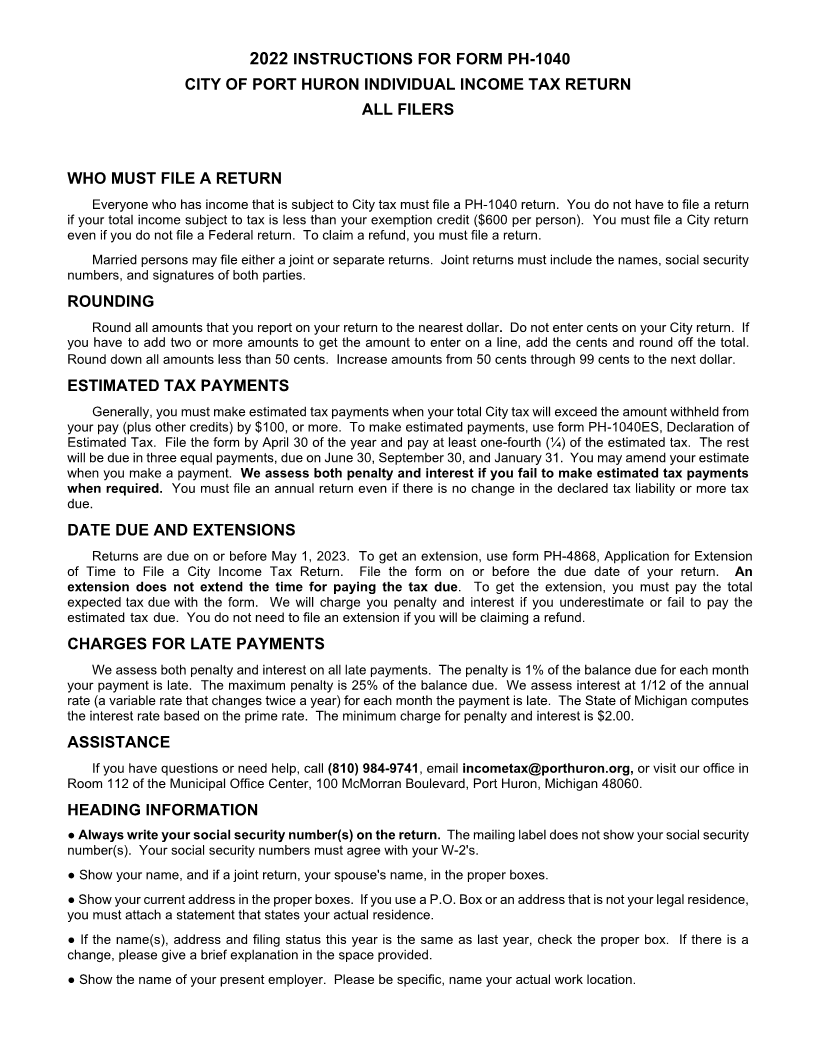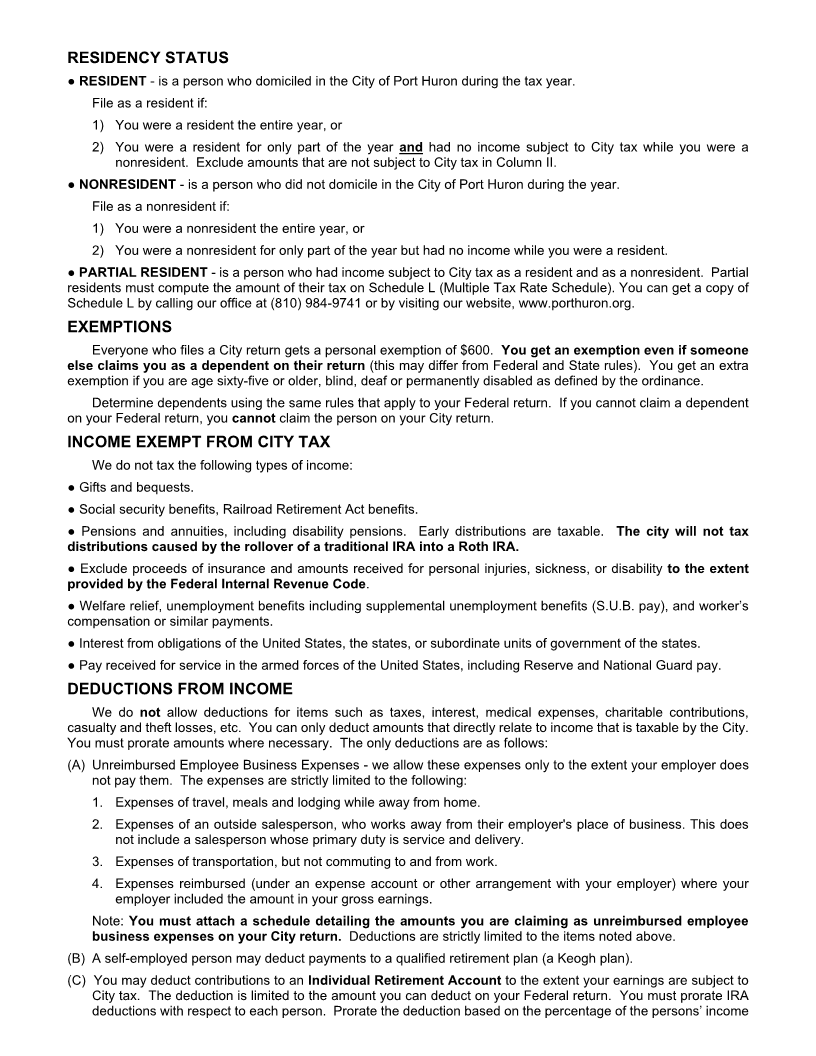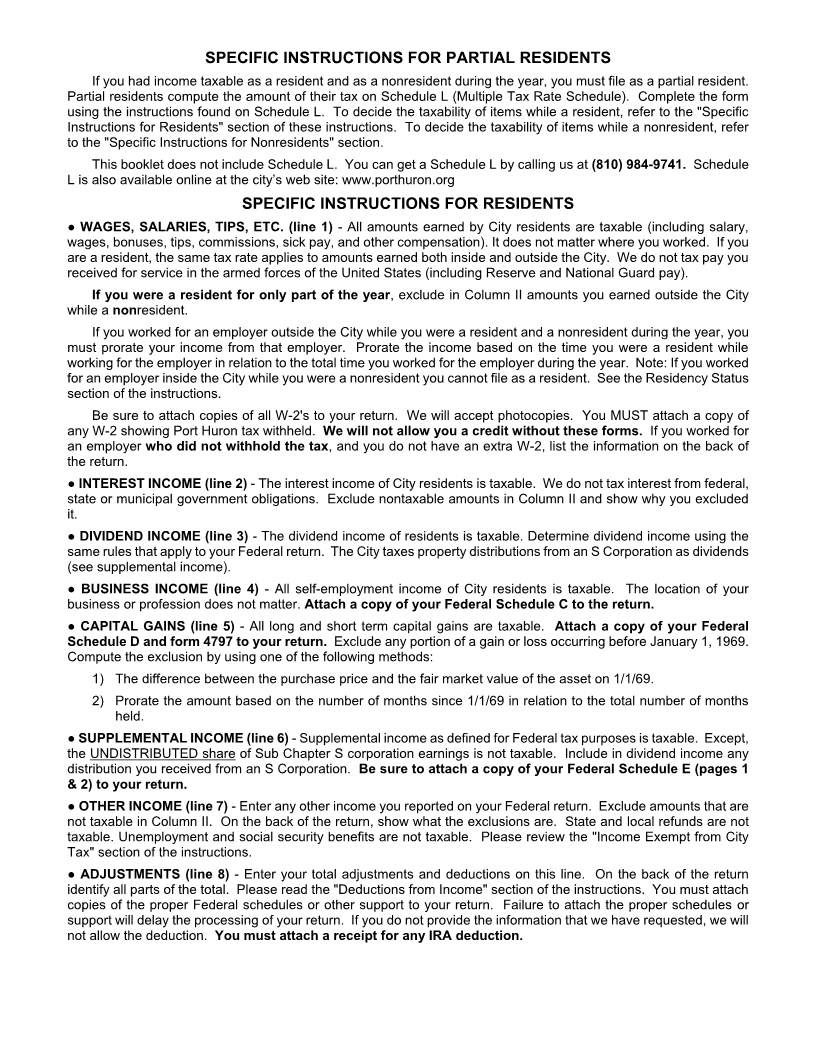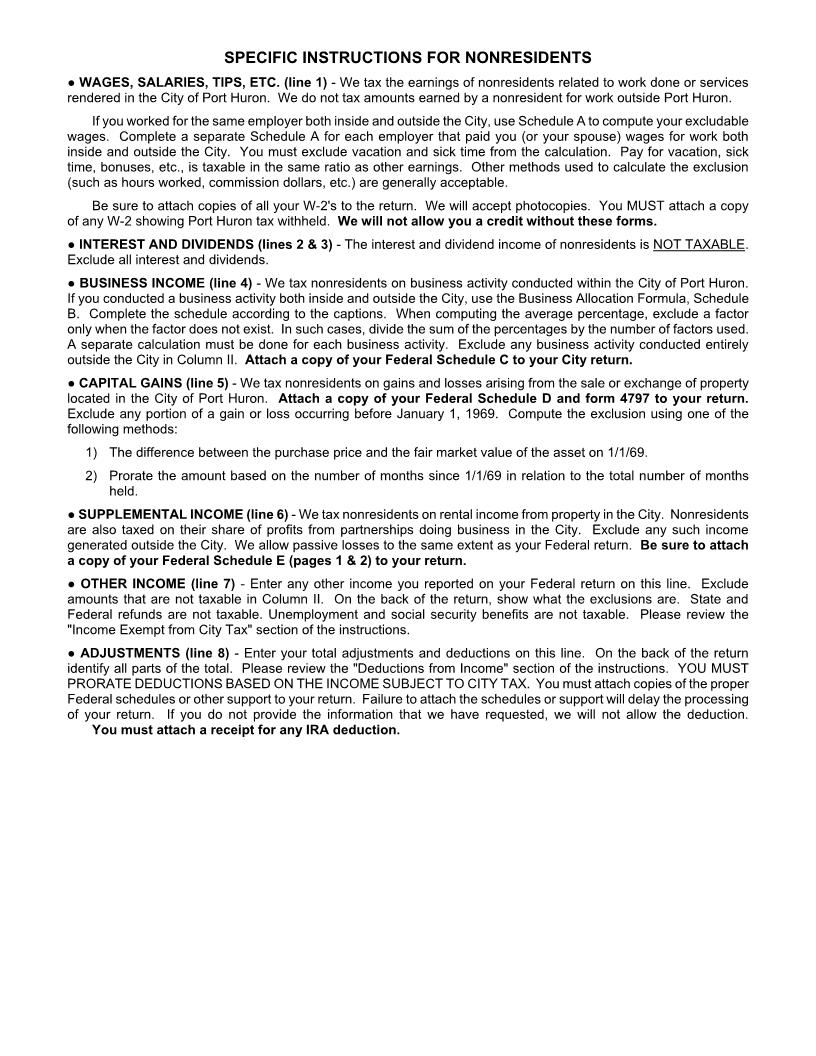
Enlarge image
202 2 INSTRUCTIONS FOR FORM PH-1040
CITY OF PORT HURON INDIVIDUAL INCOME TAX RETURN
ALL FILERS
WHO MUST FILE A RETURN
Everyone who has income that is subject to City tax must file a PH-1040 return. You do not have to file a return
if your total income subject to tax is less than your exemption credit ($600 per person). You must file a City return
even if you do not file a Federal return. To claim a refund, you must file a return.
Married persons may file either a joint or separate returns. Joint returns must include the names, social security
numbers, and signatures of both parties.
ROUNDING
Round all amounts that you report on your return to the nearest dollar. Do not enter cents on your City return. If
you have to add two or more amounts to get the amount to enter on a line, add the cents and round off the total.
Round down all amounts less than 50 cents. Increase amounts from 50 cents through 99 cents to the next dollar.
ESTIMATED TAX PAYMENTS
Generally, you must make estimated tax payments when your total City tax will exceed the amount withheld from
your pay (plus other credits) by $100, or more. To make estimated payments, use form PH-1040ES, Declaration of
Estimated Tax. File the form by April 30 of the year and pay at least one-fourth (¼) of the estimated tax. The rest
will be due in three equal payments, due on June 30, September 30, and January 31. You may amend your estimate
when you make a payment. We assess both penalty and interest if you fail to make estimated tax payments
when required. You must file an annual return even if there is no change in the declared tax liability or more tax
due.
DATE DUE AND EXTENSIONS
Returns are due on or before May 1, 2023. To get an extension, use form PH-4868, Application for Extension
of Time to File a City Income Tax Return. File the form on or before the due date of your return. An
extension does not extend the time for paying the tax due. To get the extension, you must pay the total
expected tax due with the form. We will charge you penalty and interest if you underestimate or fail to pay the
estimated tax due. You do not need to file an extension if you will be claiming a refund.
CHARGES FOR LATE PAYMENTS
We assess both penalty and interest on all late payments. The penalty is 1% of the balance due for each month
your payment is late. The maximum penalty is 25% of the balance due. We assess interest at 1/12 of the annual
rate (a variable rate that changes twice a year) for each month the payment is late. The State of Michigan computes
the interest rate based on the prime rate. The minimum charge for penalty and interest is $2.00.
ASSISTANCE
If you have questions or need help, call (810) 984-9741, email incometax@porthuron.org, or visit our office in
Room 112 of the Municipal Office Center, 100 McMorran Boulevard, Port Huron, Michigan 48060.
HEADING INFORMATION
● Always write your social security number(s) on the return. The mailing label does not show your social security
number(s). Your social security numbers must agree with your W-2's.
● Show your name, and if a joint return, your spouse's name, in the proper boxes.
● Show your current address in the proper boxes. If you use a P.O. Box or an address that is not your legal residence,
you must attach a statement that states your actual residence.
● If the name(s), address and filing status this year is the same as last year, check the proper box. If there is a
change, please give a brief explanation in the space provided.
● Show the name of your present employer. Please be specific, name your actual work location.



